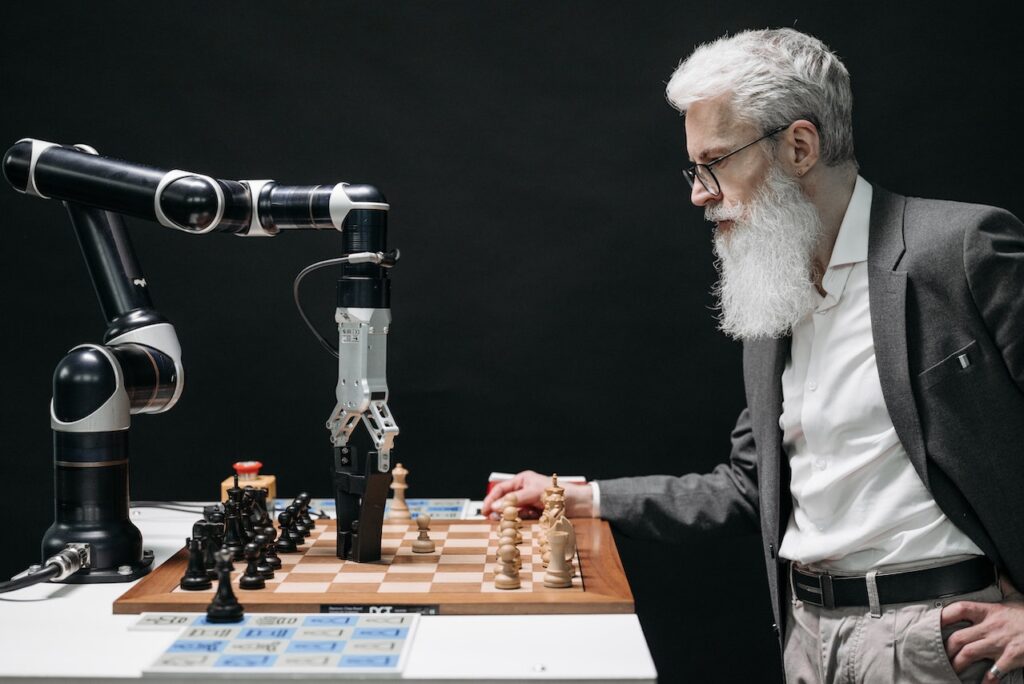Artificial Intelligence (AI) has long been a topic of discussion, with visionaries predicting its immense potential to revolutionize industries, economies, and lives. One such visionary, Masayoshi Son, founder and CEO of SoftBank Group Corp., has made headlines with his belief that AI-powered technology can surpass human intelligence significantly.

( July 28, 2016 shows SoftBank Group Representative Masayoshi Son speaking at a press conference to announce the company’s financial results in Tokyo.)
Masayoshi Son and SoftBank’s Vision
Masayoshi Son, also popularly known as “Masa,” founded SoftBank in 1981. Since its inception, the company has transformed from a telecom giant into a colossal technology investment firm, driving innovation in various sectors. Son’s interest in AI is not new; SoftBank’s massive $100 billion Vision Fund has pumped billions into AI startups, with the overarching belief that AI is the next big frontier.
In various forums and interviews, Masa has emphasized that we are on the cusp of an AI revolution. His beliefs are not just limited to the business implications of AI but also focus on how AI could redefine our understanding of intelligence itself.
AI Surpassing Human Intelligence
Son’s statement that AI can surpass human intelligence “big time” is based on the exponential growth of computing power and advancements in machine learning algorithms. Here are some of the key reasons behind this claim:
- Speed & Efficiency: Computers can process information at a much faster rate than the human brain. With the growth of quantum computing, this gap is only expected to widen.
- Big Data Analysis: AI can analyze vast amounts of data seamlessly, drawing patterns and making predictions that would take humans years to decipher.
- Continuous Learning: Unlike humans, machines don’t tire. They can continuously learn, evolve, and adapt without the constraints of fatigue or cognitive biases.
- Multitasking: AI systems can undertake numerous tasks simultaneously, something that’s challenging for most humans.
- Precision: Machines, when programmed correctly, have the capability to execute tasks with pinpoint accuracy consistently.

[cnn.com]
Concerns & Ethical Implications
However, this belief also brings forth various concerns:
- Dependency: An over-reliance on AI might lead to reduced human agency and dependency issues.
- Job Displacement: With machines taking over tasks, there’s a growing fear of job losses across sectors.
- Ethical Concerns: The idea of machines surpassing human intelligence raises questions about control, ethics, and implications for humanity’s future.
- Bias and Fairness: AI models, if not trained properly, can reinforce and amplify existing biases, leading to unfair and discriminatory outcomes.
SoftBank’s Masayoshi Son’s belief in AI’s potential is a testament to the rapid advancements we’ve witnessed in the AI space. While the potential of AI is undeniable, it’s equally important to approach this frontier with caution, ensuring that as we harness the power of AI, we do so responsibly and ethically.





